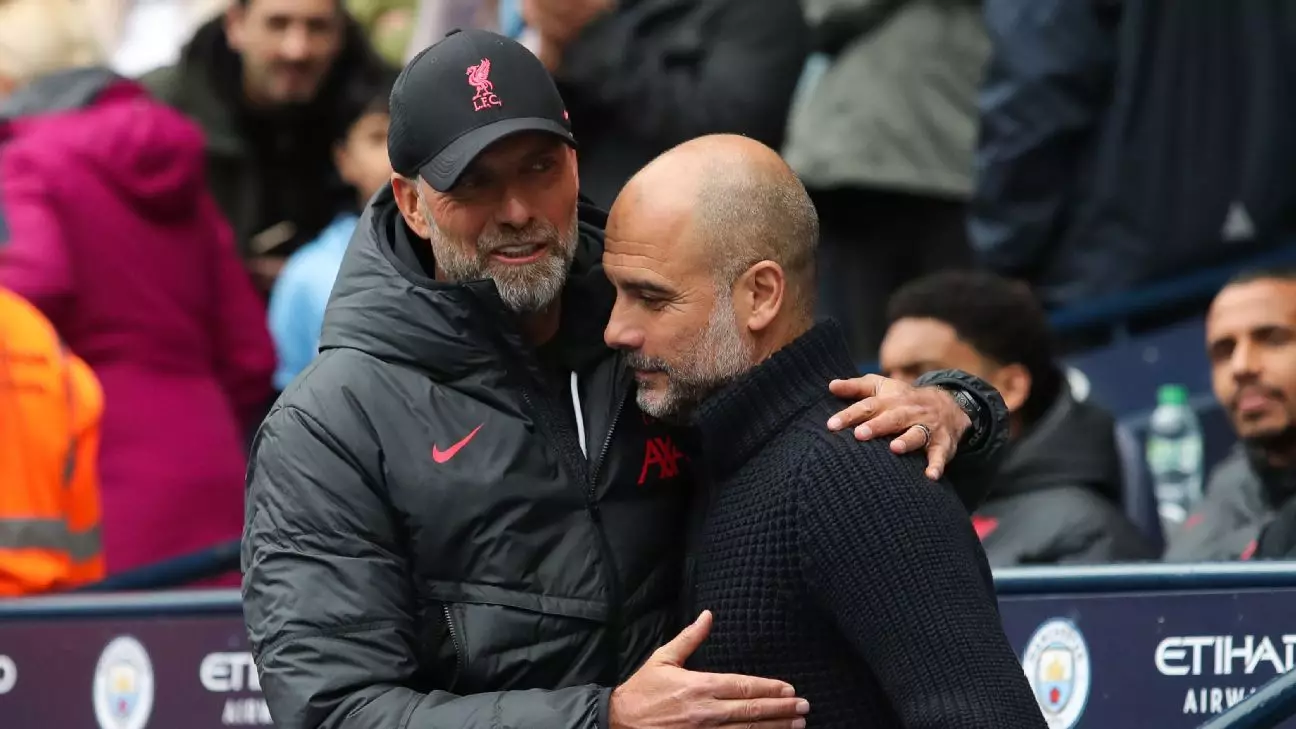In a recent press appearance, Jürgen Klopp, the former manager of Liverpool Football Club, candidly expressed his sentiments regarding the potential stripping of Manchester City’s titles due to alleged financial misconduct. Klopp’s statement triggered considerable debate, highlighting the ongoing tensions surrounding financial fair play (FFP) regulations in football. This situation raises not only questions about the integrity of the sport but also the broader implications for teams and players alike.
Klopp’s lighthearted proclamation of throwing a party in Mallorca if City were found guilty serves as an interesting contrast to the serious allegations at hand. His comedic relief in discussing the potential outcome underlines how labored these discussions have become for fans and teams affected by City’s dominance, particularly Liverpool, who narrowly finished second to the Manchester club on two occasions. The idea of a ‘garden parade’ amidst such serious implications is both an attempt to inject humor and a reflection of the frustrations many clubs feel regarding perceived injustices in the league.
The controversy surrounds a report that the Premier League has referred Manchester City to an independent commission over 115 alleged violations of financial rules spanning nearly a decade. Manchester City has consistently denied any wrongdoing, maintaining a position that their operations align with the guidelines set by the league. This ongoing saga speaks volumes about the challenges football faces in maintaining fair competition—especially when a handful of clubs possess significantly greater financial resources than others.
The crux of this issue lies in the notion of competitive balance. If proven guilty, City’s titles would not only be called into question, but it could also set a precedent that impacts the legitimacy of the league. One cannot overlook the ramifications on fan perceptions and the overall narrative that intertwines loyalty, success, and fairness in the beautiful game.
During the same press conference, Klopp faced questions about Liverpool’s own troubles regarding player contracts. Trent Alexander-Arnold, Mohamed Salah, and Virgil van Dijk are all key players whose contracts are set to expire soon, hence raising concerns about their futures. Klopp humorously distanced himself from the contract negotiations, expressing relief that he was no longer involved in day-to-day management decisions. His quip about welcoming Van Dijk to play in New York at an older age highlights the uncertainty surrounding player contracts and career trajectories in modern football.
For many clubs, stability in key player relationships is essential for both on-field success and fan loyalty. Should these players not renew their contracts, Liverpool could find themselves at a significant disadvantage in the competitive Premier League landscape. Given the potential for a significant overhaul, the management team must be proactive in their approach to ensure squad continuity.
Moreover, Klopp did not shy away from voicing his frustrations surrounding the FIFA Club World Cup. He labeled it “useless” and bemoaned the implications of scheduling such tournaments, particularly with the demanding fixture calendars football teams already face today. Klopp’s critique reflects a broader concern within the sport: the ever-increasing number of matches and the consequent toll on player health and performance.
His contention is particularly relevant, given that injuries in European football have risen in recent seasons. This provokes thought surrounding the sustainability of scheduling and the need for reform to promote player welfare. The call for reducing the number of teams in leagues serves to underline Klopp’s position on striking a more balanced approach to competition, ensuring that clubs can compete fairly without compromising the integrity of their squads or the health of their players.
In essence, Jürgen Klopp’s remarks encapsulate the intricate, multifaceted issues plaguing contemporary football—from financial regulations to player welfare. His passionate defense of Liverpool alongside his candid humor speaks to the emotional landscape of managers and fans alike as they navigate an evolving sports environment. The future of football hangs in the balance, and how leagues address overarching issues of fairness, competition, and player management will shape the sport for years to come.

